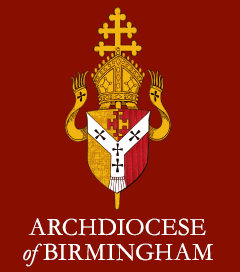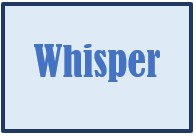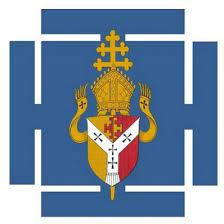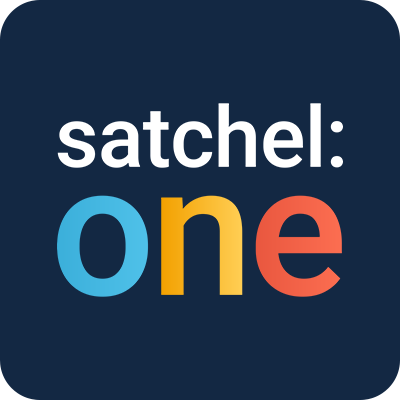Curriculum
Secondary Curriculum Statement
School Vision Statement
A Catholic school which champions each and every student.
School Mission Statement
We know and care for all, we teach our students well and have high expectations in all we do.
The development of our curriculum aims to meet the needs of Greyfriars students and has been designed with them specifically in mind.
Equality of access for all our students runs through the intent, implementation and interventions within the curriculum. It is through knowledge, care and ambition that we know, support and develop each student in every subject. We champion each and every student through inclusive practices through quality first teaching and the directed support of our inclusion champions.
Intent:
Our curriculum is designed with Christ at the centre so that the learning pathway of all students is broad, balanced, ambitious and appropriate. This provides our young people with the core knowledge that is the foundation of success. We aim to maximise their cognitive development, to develop the whole person and the talents of the individual so that Greyfriars students become active members of their faith and local communities.
The curriculum has been reviewed in the light of the new National Curriculum introduced in 2014, and we have subsequently developed our programmes of study at KS3 to tie in with the knowledge, skills and understanding that we think students need to be successful at GCSE Level and beyond.
At the heart of our curriculum lies a respect for the subjects we teach and for the insight that each provides into the world around us. Our aim is to teach students how to think, how to criticise and how to be active, but each of these skills are taught within the context of the rich knowledge each subject provides. By instilling our students with the best of what has been thought, said and done in each subject, we hope that our curriculum enables children to appreciate and participate in the full richness of the human experience.
The development of our curriculum aims to meet the needs of Greyfriars students and has been designed with them specifically in mind.
Our curriculum aims to provide a coherent, structured, academic curriculum that leads to sustained mastery for all and a greater depth of understanding for those who are capable.
Our curriculum driver is Catholic Life, and it shapes our curriculum, brings about the aims and values of the school and responds to the particular needs of the community.
As a faith school we hold the teaching of the Gospel at the heart of our teaching and learning. As such our students learn to become active, responsible members of our school, local and global community. Our Catholic Life underpins and drives social justice.
Cultural Capital is one aspect of social justice. Cultural Capital is the background knowledge of the world students need to infer meaning and further steward a continued acquisition of knowledge of subjects taught. It includes vocabulary and experiences, which, in turn helps students to build aspirations and know available possibilities for their future lives.
Implementation:
Our curriculum design is based on evidence from cognitive science. It is supported by three main principles:
- Learning is most effective with spaced repetition. This means that threshold concepts are revisited in each milestone and across each phase on more than one occasion.
- Interleaving can be used to help students discriminate between topics and aids long-term retention. This means that some knowledge will be in taught in parallel with other knowledge and will be built into the continuous provision both indoors and out.
- Retrieval of previously learnt content is frequent and regular, which increases both storage and retrieval strength. This means that things the children know well are revisited and extended.
In addition to the three principles, we understand that learning may be invisible in the short-term and that sustained mastery takes time. As a result we expect stepped well sequenced learning which builds complexity from solid fundamental foundations.
Impact:
The impact of curriculum is that by the end of each milestone, the vast majority of students have sustained mastery of this content. This means they are able to remember what they have learnt and are fluent in it. Some students will have a greater depth of understanding.
We track progress to ensure students are on track to reach the expectations of our curriculum and know that nothing is learnt unless it rests in a student’s long-term memory. This does not happen and cannot be assessed in the short term. Therefore, we ask three main assessment questions:
- How well are the students coping with the curriculum content?
- Are they on track to meet end of milestone expectations?
- How well are they retaining previously taught content?
Key Stage 3 - Year 7, Year 8 and Year 9
At Key Stage 3, students study a comprehensive range of subjects.
The National Curriculum core subjects (English, Mathematics and Science) and the foundation subjects are taught together with Religious Education.
Key Stage 4 - Year 10 and Year 11
At Key Stage 4, students study the following compulsory GCSE subjects: English Language, English Literature, Mathematics, Science (either Double Award or Separate Sciences), Religious Education, and Core PE.
In addition to these core subjects they choose an additional three optional courses which must include at least one humanity subject or a language. Students make this choice in the Spring term of Year 9 following the GCSE Option Evening where all the subjects open to the students are discussed and where both students and parents can talk to the subject teachers about what's involved in the courses.
Some students will be offered Functional Skills ASDAN or entry level qualifications and a little more time to improve their key skills and maximise their progress in GCSE subjects, especially English and Mathematics.
Please click here to read a guide to Curriculum Reform and changes to GCSE grading.
Key Stage 5 - Sixth Form - Year 12 and Year 13
For information on Key Stage 5, please see the Sixth Form Curriculum page.





